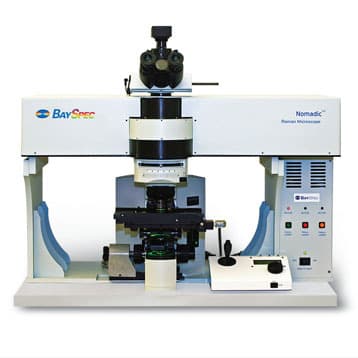
Supplier:
New England Biolabs, Inc.EpiMark® Bisulfite Conversion Kit
Genomic DNA from many organisms has modified nucleotides. In the mammalian genome, the modified base is predominately 5-methylcytosine (5-mC), which is involved in gene expression regulation, including selective inactivation of one X chromosome in females of mammalian species (1,2). Symmetrical CpG DNA methylation is heritable, but also reversible. This change of methylation status results in an enormous number of combinations of epigenetic states that can regulate gene expression.
In mammalian cells, DNA methylation mainly occurs in CpG dinucleotides and is carried out by two methyltransferase enzymatic activities, namely, maintenance methylation and de novo methylation.
The maintenance methyltransferase, DNMT1, is involved in the DNA methylation after every cellular DNA replication cycle. DNMT3a and DNMT3b are the de novo methyltransferases that are active in early development.
Prices direct from New England Biolabs, Inc.
Quick response times
Exclusive Labsave savings/discounts
Latest promotions
<p>Currently, we offer a great package deal for our tube handling systems. When you buy a HT500 or HT700 tube sorting system, you will receive a sample storage essentials pack for free. This comprises a single tube reader (DT510) and a rack reader (DR900), as well as a free case of tubes of your choice. This package will allow you to get started with efficient and high quality sample sorting.</p>
BaySpec, Inc. is offering special academic discount with the new NomadicTM multi-excitation confocal Raman microscope. NomadicTM is the only Raman microscope...
15% off on BMT Incubators - Climacell, Friocell, Incucell / Incucell V. On-Line Special 15% Discount on all Incubators, including Incubator options. •...
Order any Aries FilterWorks High Purity Lab Water Purification System an receive the first Years’ worth of Carbon and/or DI filters free! Please...
Combination Really-Flow™ Fluoride electrode, Epoxy body, Single Junction, Refillable with 1 meter low-noise cable and BNC connector. Weiss...
Avoid the risks associated with sample transfer and reduce hands-on time when you bind, wash, elute and/or concentrate your protein in the all-in-one...
Jenway’s 73 series spectrophotometer range provides four models with a narrow spectral bandwidth of 5nm and an absorbance range of –0.3 to 2.5A,...
Top suppliers
NuAire, Inc.
63 products
PCE Instruments UK Ltd
19 products
Randox Laboratories
189 products
Panasonic Healthcare Company
5 products
Life Technologies
1 products
Nikon Instruments Europe
11 products
Olympus Europa Holding GmbH
3 products
GE Healthcare Life Sciences
2 products
Tecan Trading AG
19 products
BD (Becton, Dickinson and Company)
KEYENCE Corporation
5 products
RANDOX TOXICOLOGY
5 products
Randox Food Diagnostics
6 products





.jpg&w=640&q=75)
















